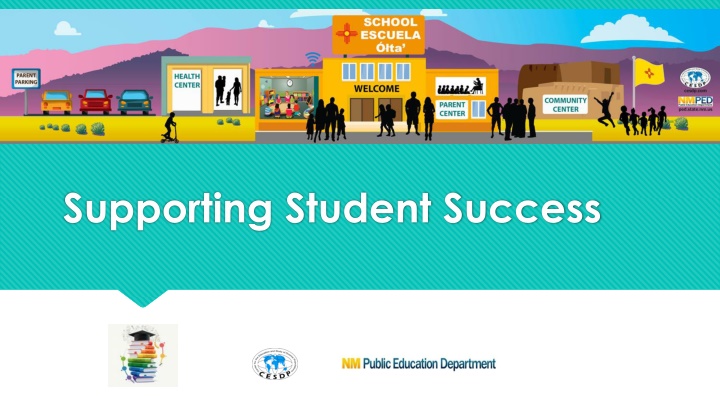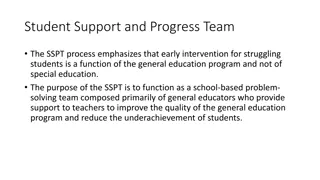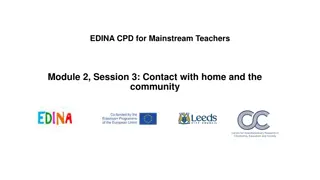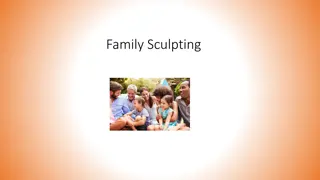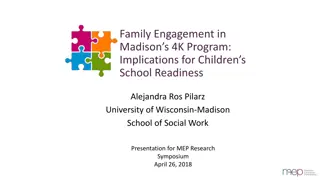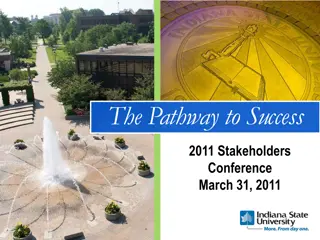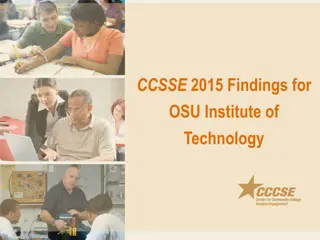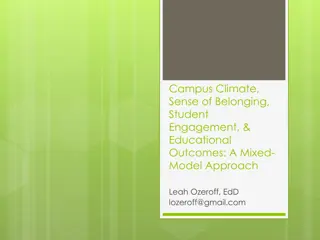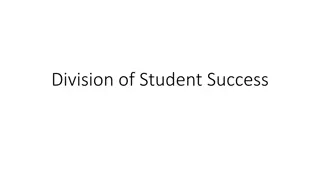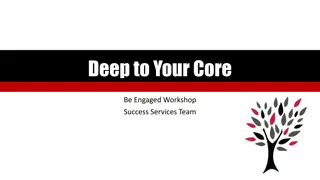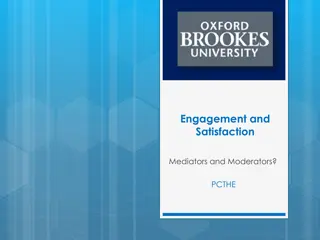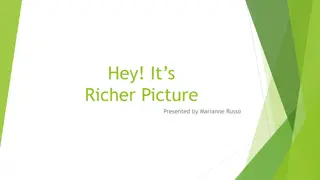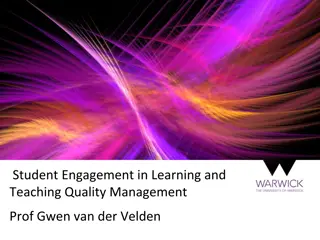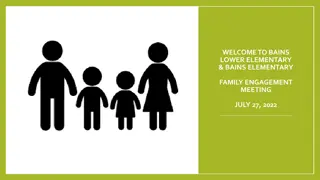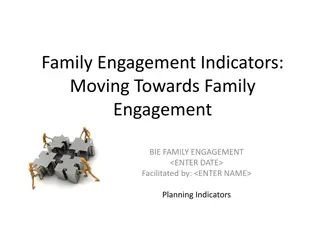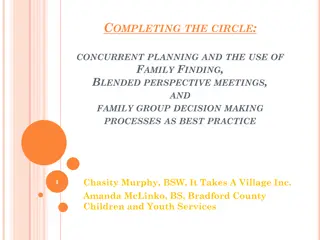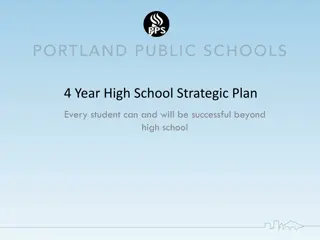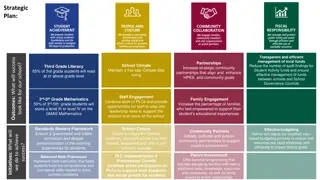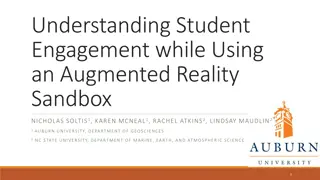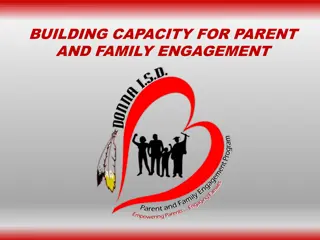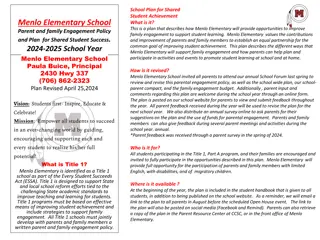Enhancing Family Engagement for Student Success
Foster family-school partnerships to support student success by sharing information on student progress and engaging families in learning activities. Explore key questions addressing communication between parents and teachers, understanding student assessment data, and involving families in educational practices at home and school.
Uploaded on Sep 28, 2024 | 0 Views
Download Presentation

Please find below an Image/Link to download the presentation.
The content on the website is provided AS IS for your information and personal use only. It may not be sold, licensed, or shared on other websites without obtaining consent from the author.If you encounter any issues during the download, it is possible that the publisher has removed the file from their server.
You are allowed to download the files provided on this website for personal or commercial use, subject to the condition that they are used lawfully. All files are the property of their respective owners.
The content on the website is provided AS IS for your information and personal use only. It may not be sold, licensed, or shared on other websites without obtaining consent from the author.
E N D
Presentation Transcript
A Vision for New Mexico Schools Families are assisted in helping students to set academic goals, select courses and programs and plan for college, their next level of schooling (i.e. middle school and high school) or work. Professional development and planning opportunities are provided related to family engagement and developing partnerships for student success. Parent-teacher-student conference are carefully planned and accommodate parents schedules and transportation needs. Concern for students is the focus of teacher-parent interaction. State and federal program requirements and funding sources for family engagement are carefully considered and leveraged to support effective policies and practices. 2
There are Two Main Goals for Supporting Student Success 1. Share information about student progress. 2. Support learning by engaging families. 3
Supporting Student Success Family-School Partnerships designed to support sustainable initiatives that build knowledge and skills among educators and families to partner together around student success have an impact on healthy student development both at home and at school. This area focuses on best practices to support sustainable initiatives that build capacity among educators and families to partner together around student success. 4
Share Information About Student Progress Key Questions to Consider Families should be informed of how their children are doing in school, as well as how the entire school is progressing. Questions that this focus area addresses include: Do parents and teachers communicate about student progress? Do parents learn what good work looks like for their child s age and grade? Does the school use assessment and test results to inform parents which student skills need strengthening? Tests such as ACCESS Language Proficiency, PARCC Tests, Classroom Assessments, and others as appropriate. 5
Support Learning by Engaging Families Key Questions to Consider Families should be active participants in their children s learning at home and at school. Are families invited to observe their children s classrooms, visit the school, and support student learning at school and/or home? How do schools help families strengthen learning at home? What after-school learning opportunities are there? What are the needs for these? 6
Resources Toolkit http://nmengaged.com/resources-toolkit/ RESOURCES TO SUPPORT THE FRAMEWORK FOR FAMILY-SCHOOL PARTNERSHIPS IN NEW MEXICO Use these tools to support your work. They are categorized by general resources and each of the six focus areas. They are designed for the following: Reflection on practice Inclusion in school websites and newsletters Use with families and students Professional development Planning and implementing an action plan 7
Supporting Student Success School Level Reflection Rubric for Supporting Student Success Refer to the School-Level Reflection Rubrics for the areas that you have identified as priorities. These will be helpful in examining what good practices look like and developing ideas for partnership practices and activities as you develop an Action Plan. The School-Level Reflection Rubrics can also be used to monitor progress in reaching goals, designing professional development for school staff, and conducting a school walk-through. The levels of practice build on each other, assuming that practices in the emerging and professing levels will continue at the next level. 8
How does this Framework Focus Area fit into your Action Plan? 9
10 NMengaged.com
